Camping is one of the most rewarding ways to connect with nature, slow down, and enjoy simple pleasures. But if you’re a first-timer, the idea of sleeping outdoors can feel a bit intimidating. Don’t worry—we’ve all been there. With the right gear, planning, and mindset, camping can become your favorite weekend escape.
Whether you’re planning a family trip, a romantic getaway under the stars, or a solo adventure, these best camping tips for beginners will help you feel confident, comfortable, and well-prepared for your first outdoor experience.
1. Choose the Right Type of Camping
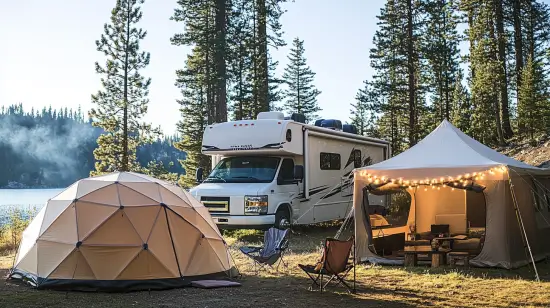
Before buying gear or packing your bags, ask yourself: What kind of camping experience do I want? Beginners often find that car camping—where you drive up to your campsite—is the easiest starting point. This allows you to bring more gear without having to hike long distances.
Other types include:
- Tent camping in the wilderness
- RV camping with onboard comforts
- Glamping (luxury-style camping with pre-set accommodations)
- Backpacking, which is best for more experienced adventurers
Tip: For your first few trips, choose a campground that’s close to home with basic amenities like toilets, picnic tables, and water access.
2. Stay Close to Home (At First)
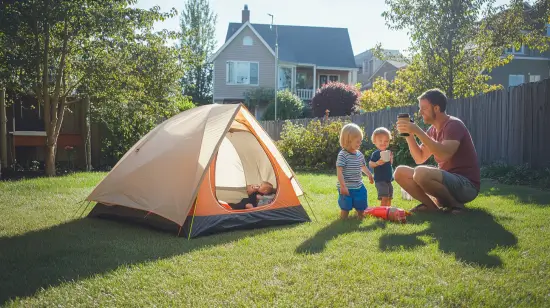
Camping for beginners is a learning process. Staying within an hour or two from home lets you quickly return if something goes wrong—weather, illness, or even forgotten essentials. If the trip doesn’t go as planned, don’t call it a failure. Learn from it, make a few changes, and try again.
Also Read: Night Travel Tips for Solo Backpackers: Stay Safe, Smart, and Confident on the Road
3. Do a Full Test Run at Home
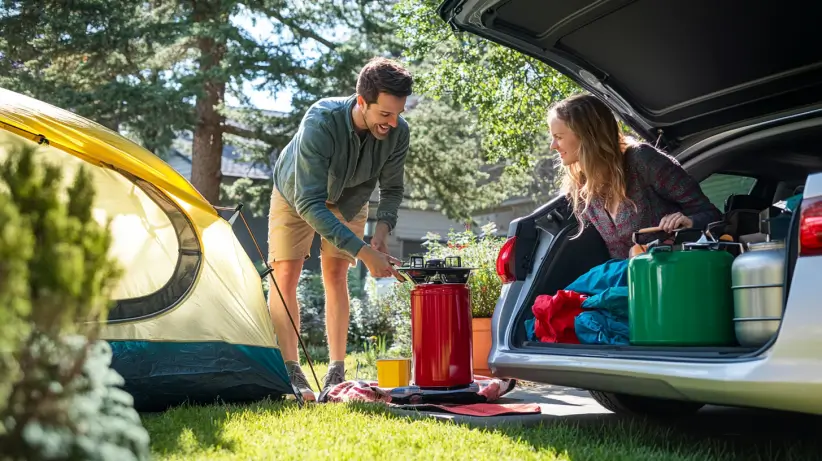
One of the most overlooked camping tips for beginners is to practice at home before heading out.
Here’s what to test:
- Pitch your tent in the backyard or living room.
- Set up your camp stove and cook a simple meal.
- Pack your car as if it’s departure day to see if everything fits.
- Run through a mock camp setup and pack-up session with everyone involved.
- Take photos or notes of your packed car to remember the layout for next time.
Involving the whole family (even the kids) ensures that everyone knows their role, and it builds excitement for the real trip.
4. Create a Personalized Camping Checklist
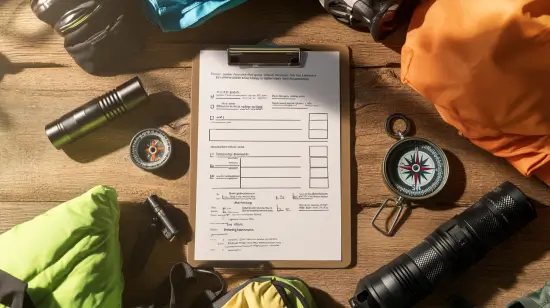
Camping checklists are essential. Without one, you’re likely to forget something important or overpack. Start with broad categories and then list specific items under each.
Must-have categories include:
- Tent & Shelter: tent, stakes, ground tarp, rainfly
- Sleeping Gear: sleeping bags, sleeping pads, pillows, blankets
- Cooking Supplies: stove, fuel, lighter, pots, pans, utensils
- Food & Cooler: non-perishables, drinks, ice blocks
- Clothing: weather-appropriate layers, rain gear, footwear
- Lighting: headlamps, lanterns, extra batteries
- First Aid & Safety: bandages, medications, insect repellent
- Toiletries: toilet paper, wipes, toothbrush, biodegradable soap
- Camping Furniture: chairs, table, hammock
- Entertainment: books, cards, outdoor games
Tip: If it’s not on the list, don’t bring it. This helps cut down on clutter and saves money.
5. Pack Smart and Keep It Dry
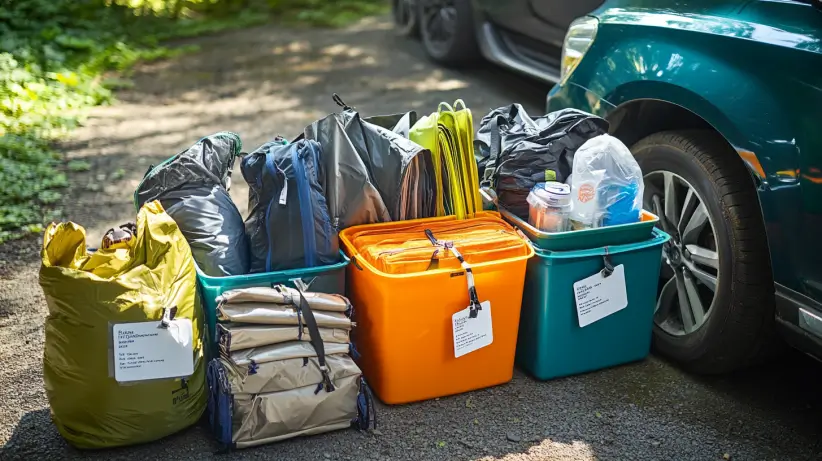
Organization is key. Use labeled storage bins or duffel bags to keep things tidy. Group items by category, kitchen gear in one, sleeping gear in another. Use ziplock bags, dry sacks, or storage tubs to protect important items from moisture.
Always bring extra trash bags, not just for garbage but also for wet clothes, dirty shoes, or emergency ponchos.
6. Pack Weather-Appropriate Clothing
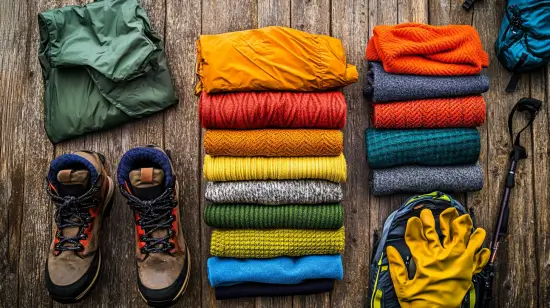
Nature is unpredictable. Even if the forecast says sunshine, pack for cold nights, rain, and wind. You can always take layers off, but you can’t conjure them up once you’re freezing at 3 AM.
Clothing tips for new campers:
- Lightweight raincoat or poncho for each person
- Thermal underwear (yes, even in summer—it gets cold at night)
- Comfortable hiking shoes or boots
- Dry socks and extra underwear
- Quick-dry and moisture-wicking fabrics
Dry equals happy. Always have a backup outfit and keep it in a dry bag, just in case.
7. Prioritize Comfortable Sleeping Arrangements
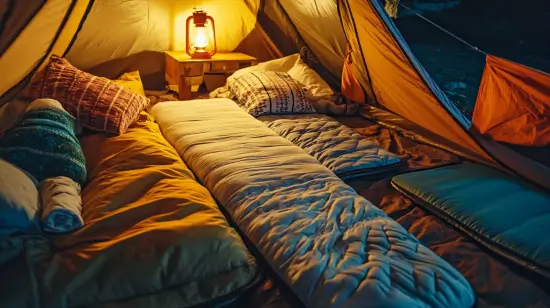
A bad night’s sleep can ruin the whole camping experience. Invest in quality sleeping gear instead of relying on the cheapest air mattress or basic foam pad.
For better sleep:
- Use insulated sleeping pads or self-inflating mats (not cheap pool floats!)
- Choose sleeping bags rated for the lowest possible nighttime temperature
- Bring extra blankets, real pillows, and a sleep mask or earplugs if needed
- If you’re a light sleeper, add comforts from home—like a lavender spray, sleep app, or sound machine
Comfort makes or breaks your first trip, so don’t cut corners on your sleep setup.
8. Learn the Basics of Campfire Safety
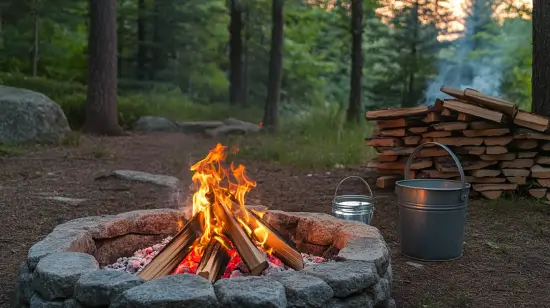
A campfire is the heart of most campsites, but it requires responsibility. Always follow posted rules, especially during fire bans.
Fire safety 101:
- Only build fires in designated fire pits
- Clear the area of leaves and flammables
- Never leave a fire unattended
- Have water and a shovel ready to extinguish it
- Put the fire completely out before bed or when leaving
And don’t forget, marshmallow campfires are for cooking, too!
9. Store Food Properly (Keep Wildlife Away)
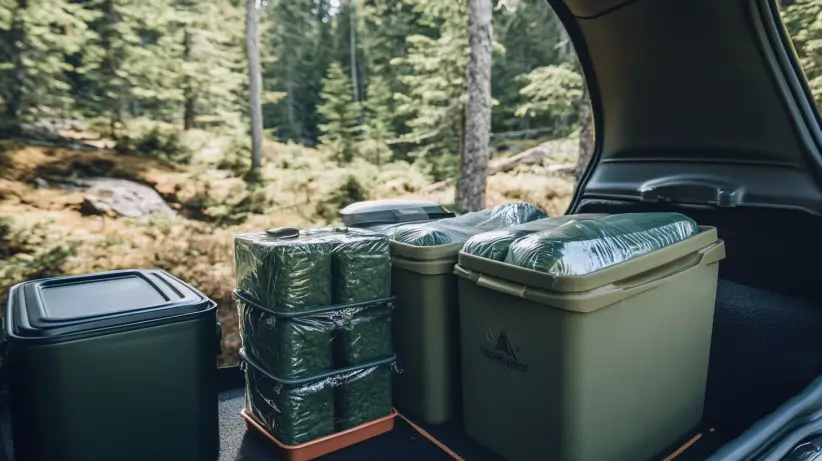
Wild animals have sensitive noses, and leaving food out invites unwanted visitors. Use sealed coolers and lock food in your car or campsite-provided storage.
In areas with bears, follow local bear-safety protocols, such as:
- Using bear-proof containers
- Hanging food bags in trees if no lockers are available
- Never store food or toiletries in your tent
Tip: Use unscented hygiene products to reduce animal interest.
10. Master Easy Camp Cooking
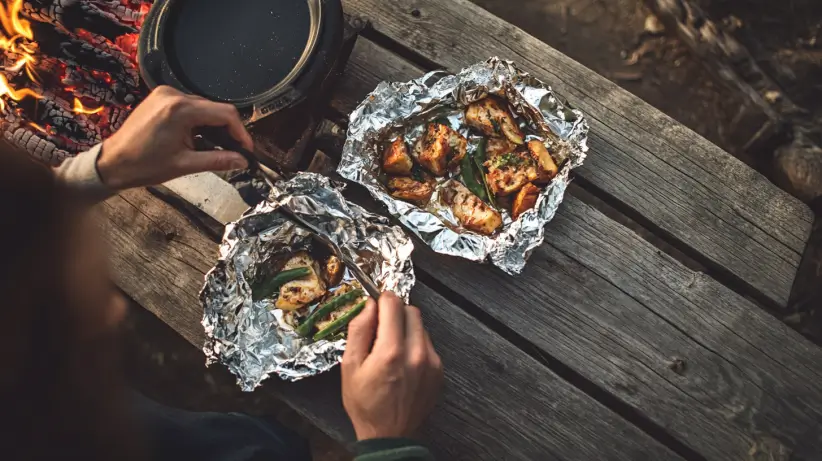
Simple meals = less stress. Focus on recipes that require minimal ingredients and cleanup.
Easy meal ideas:
- Foil packet meals with meat, veggies, and seasoning
- Pasta with pre-made sauce
- Grilled sandwiches and wraps
- Instant oatmeal and trail mix for breakfast
- Pre-chopped veggies and marinated proteins
Freeze water bottles to keep your cooler cold and use them as drinking water when they thaw.
Don’t forget essentials: salt, oil, utensils, a can opener, and a sharp knife.
11. Plan for Bugs (They’re Part of Nature)
You’ll encounter mosquitoes, flies, and maybe even ants. Prepare for them so they don’t ruin your trip.
Bug control tips:
- Use DEET or Picaridin-based insect repellents
- Set up mosquito coils or citronella candles around the campsite
- Wear long sleeves and pants at dusk
- Bring a mosquito net if you’re sensitive to bites
A few precautions go a long way toward keeping your trip itch-free.
12. Leave No Trace
Respect the outdoors with the Leave No Trace principles. These aren’t just guidelines—they’re essential for keeping campsites clean, safe, and beautiful for everyone.
Core principles:
- Pack out everything you pack in
- Stay on marked trails and tent areas
- Don’t feed or approach wildlife
- Use biodegradable soap and dispose of waste properly
- Minimize your campfire impact
Leave your site better than you found it. Future campers will thank you.
13. Time Your Arrival Right
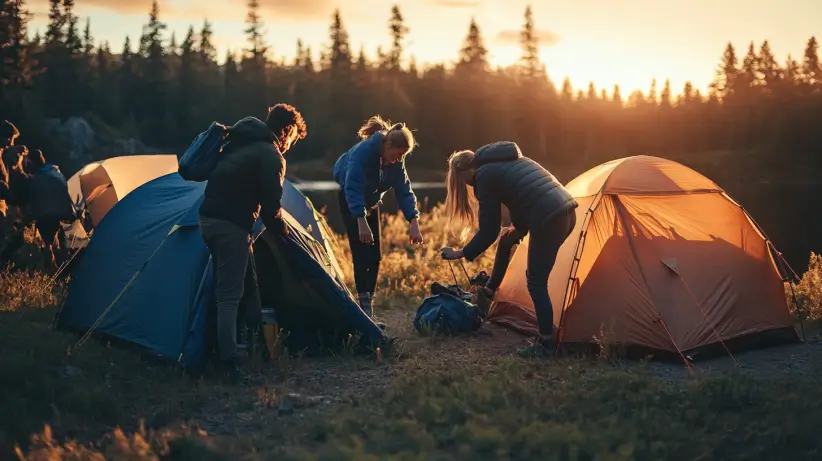
Arrive at your campsite early, ideally 2–3 hours before dark. This gives you plenty of daylight to set up your tent, get settled, and explore. Rushing to pitch a tent in the dark is a classic beginner mistake.
Also, avoid Sunday night departures if possible. Traffic, fatigue, and the Sunday scaries hit hard after a long weekend outdoors.
14. Use Offline Maps & Stay Informed
Don’t count on cell service, especially in remote areas. Download offline maps via Google Maps, Gaia GPS, or Maps.me. Also, bring printed directions and a paper map, and compass as a backup.
Check the local weather, fire danger ratings, and trail closures before leaving home.
15. Make It Fun for Everyone
Camping is about creating memories, not just surviving. Bring along:
- Board games or card decks
- A hammock for reading or relaxing
- A camera or sketchpad
- Binoculars for bird watching
- Storybooks or music playlists
Get everyone involved in cooking, pitching the tent, or gathering kindling. Shared responsibility builds team spirit and keeps boredom at bay.
Final Thoughts
Your first camping trip doesn’t need to be perfect—it just needs to happen. With these best camping tips for beginners, you’ll be ready to explore the outdoors with confidence, curiosity, and comfort. Remember to test your gear, pack smart, and embrace the simplicity of life outside.
The wild is waiting. All that’s left is for you to take the first step.
Frequently Asked Questions (FAQs)
Q: How can I stay warm while camping in cold weather?
A: Layer up! Wear thermal underwear, wool socks, insulated sleeping bags, and extra blankets. Don’t forget a hat—it helps retain body heat overnight.
Q: What should first-time campers avoid?
A: Avoid overpacking, poor sleep setups, ignoring weather reports, and leaving food out. Always test your gear and arrive before sunset.
Q: Do I need to reserve a campsite in advance?
A: Yes! Especially during weekends or holidays. Use websites like Recreation.gov, The Dyrt, or Hipcamp to find and book spots.
Q: What’s the easiest meal to cook when camping?
A: Foil packet meals are beginner-friendly and require no cleanup. Just toss ingredients in foil and cook over the fire or on a grill.
Q: Is camping safe for families with kids?
A: Absolutely. Choose a kid-friendly campground with amenities, involve them in setup tasks, and monitor fire and water safety closely.
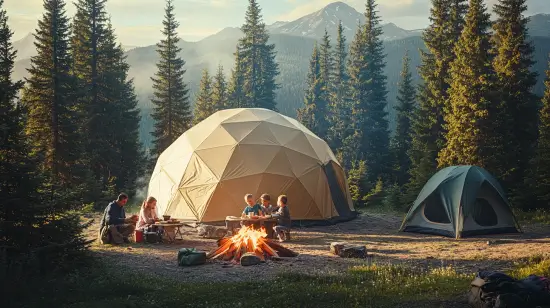
Leave a Reply
You must be logged in to post a comment.